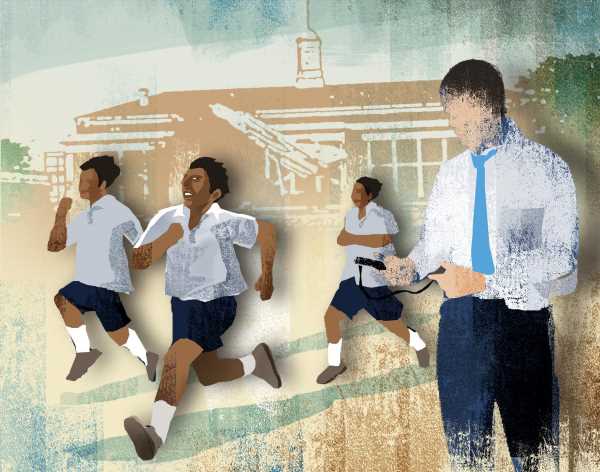A Ganesh Nadar shares the unforgettable lessons his teachers have taught him.
I was sitting on the athletic field, feeling very dejected.
I had led in the 1,500 metre race for the first two laps, but, when the race ended, I was last because I could not keep up.
Mr Russell — he was my maths teacher and all of six feet, six inches tall — was passing by and noticed my gloomy face.
He stopped and said, ‘You are the best student in the school in academics, but you cannot be the best in everything. I am happy that you completed the race though you wasted all your energy in the first two laps.’
‘You should have paced yourself like the rest. You know that the 1500 metre race consists of four laps.’
In those gentle, generous words were a lesson — he had taught me that, if I want to win a race, any race, I need to pace myself and conserve my energy.
He also taught me to accept my limitations and be happy with my achievements.
Teachers are not only found in educational institutions. You will find them elsewhere as well. And each of them will change your life.
I used to study at the Barnes School and Junior College in Deolali, Maharashtra.
It was a boarding school so our teachers had a bigger influence on us than on the children who were day students and went home after school.
Boarding school students spend every hour of every day with their teachers.
My first housemaster — the teacher who was responsible for our hostel — was Mr D V Hoffman.
He had this habit of numbering his statements when he spoke to us.
‘Number one, there is not enough water today.’
‘Number two, you cannot have a bath.’
‘Number three, you can wash your hands up to your elbows, and legs up to your knees, and your face.’
So we used to call him Number One.
He taught me about cleanliness.
During inspection every Sunday, he would check our clothes, our shoes, our white keds on which we had carefully used Blanco, our socks and even our nails and ears.
I can still see him smelling our socks and looking disgusted.
My second housemaster — when I was in the senior block — was Mr S B Gadre, a very strict and very, very, sarcastic teacher.
He once told me — and I follow his advice to this day — ‘You must sleep before midnight. Half an hour before midnight is equal to two hours after midnight. The body cycle is such.’
Mr Paul, who taught me in Class 9, once slapped me for yawning in his class.
He was thoughtful enough to remove my glasses, slap me, and then place the glasses safely on my nose again.
He taught me punctuality.
Even if you were a minute late for meals, you had to stand outside the hall until the rest of the students finished eating.
You were allowed to eat after everyone had finished and left the hall.
In a boarding school, children are always hungry so you can imagine how much food was left after everyone finished.
After school, I moved to Mumbai and joined Elphinstone College.
As a second-year science student, I noticed that a lot of students who wanted to study medicine were attending private classes.
I wondered why.
One day, after the lecture, I caught up with my physics professor, Mr Pai.
I asked him if he would be completing the syllabus.
‘Yes, I will,’ he replied, surprised. ‘Why do you ask?’
‘If you are going to complete the syllabus,’ I said, ‘Why are so many students going for private classes?’
‘Do you understand what I teach? Do you understand all the professors who teach you?’ he asked.
I said I did.
‘Then you don’t need to attend any other classes. If you can understand what is being taught here, it is enough. You will get the best grades.’
Professor Pai did not know it, but he taught me self-confidence.
I could not get into medical college though I had scored in the first class — there was no NEET those days — so I switched to the arts stream.
One of my subjects was philosophy and it was taught by Professor Bongale.
During one of our lectures, he asked us if we knew what faith was.
We told him it was a belief in God.
He did not agree.
This is what he said and it has stayed with me all my life, ‘You leave your house in the morning and come to college. When you return in the evening, you know your house will still be there. And it is. That is faith.’
I was 35 years old when I became a journalist; it was a late start, but I knew it was what I wanted to do.
My first editor taught me many things. There is, however, one advice that he gave that has always remained with me.
‘Keep your eyes and ears open. Observe everything. Remember, it is the little things, the nuances that you notice, that make a great story.’
‘Before you start writing imagine the structure of the story, the introduction, the body of the story and the conclusion.’
My wife Bhavani taught me patience.
She always said, ‘f you work hard and wait, the rewards will come at the right time.’
My greatest teacher has been Time.
It has taught me that even when you lose your most precious loved ones, life goes on.
Source: Read Full Article

